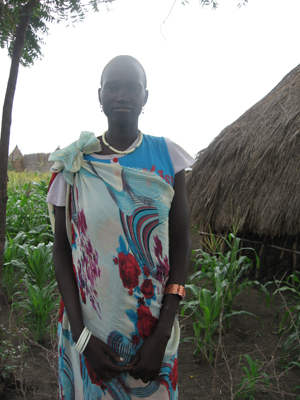 In times of crisis, we depend on the most fail-safe of interventions: people helping people. In response to war, civil strife, floods or other disasters, a human health work force on the front lines saves lives.
In times of crisis, we depend on the most fail-safe of interventions: people helping people. In response to war, civil strife, floods or other disasters, a human health work force on the front lines saves lives.
It is for this reason, the Women’s Refugee Commission praises the efforts of frontline health workers and strongly advocates for their support. During an emergency, national and international assistance is rarely available in the first 72 hours. As a result, communities and their local health work force must address urgent health needs during those early days.
These workers save lives, whether through house-to-house outreach to ensure continuation of needed treatments for HIV, tuberculosis and other conditions, caring for survivors of sexual violence, referring pregnant women in the midst of an emergency, or providing immunizations to children in inaccessible regions. Their work and commitment is invaluable, especially in fragile regions.
The recent, tragic deaths of seven health workers in Pakistan highlight how communities rely on such workers, but also the risks they face in carrying out their critical work each day. When Typhoon Sendong (Washi) hit the Philippines one year ago, it took time for national and regional assistance to mobilize. However, Barangay health workers—including adolescent outreach workers—who were trained and supported for response, helped to address the immediate health needs of local communities during the earliest days of the emergency. In South Sudan and Somalia, where ongoing violence, insecurity and issues of access to health care continue, community health workers provide the majority of health care to a population unable to avail facility based medical care and health clinics.
Frontline health workers have the ability to reach those who cannot be reached due to insecurity, restricted passage and issues of community trust. When these workers are not able to function, the results are devastating. However, when trained and supported, not only are the needs of a large population met, but the quality of the services provided can be higher and lives will be saved.
Understanding the critical role that frontline health workers play in preparing for and responding to emergencies, the Women’s Refugee Commission is investing in their capacity for disaster risk reduction. Initiated in 2012, our work will continue to focus on bringing frontline health workers and first responders together to provide training on priority sexual and reproductive health actions, which will reduce morbidity and mortality particularly among women and girls. By further empowering those on the frontlines, we can have an impact on the lives of those most affected by conflict and natural disasters.
Recent disasters in the Sahel, conflict in Somalia, and civil strife in Syria illustrate the range of devastation that can be experienced. Through news stories, we hear of devastation, loss of hope and tragedy. However, what we don’t frequently hear are the stories of success, triumph and strength from inside these countries, in the midst of the crisis.
Despite collapsing infrastructure, individuals continually step forward to deliver the health services so crucially needed. These frontline health workers are among the greatest unsung success stories.
This blog originally appeared on the Frontline Health Workers Coalition blog.

